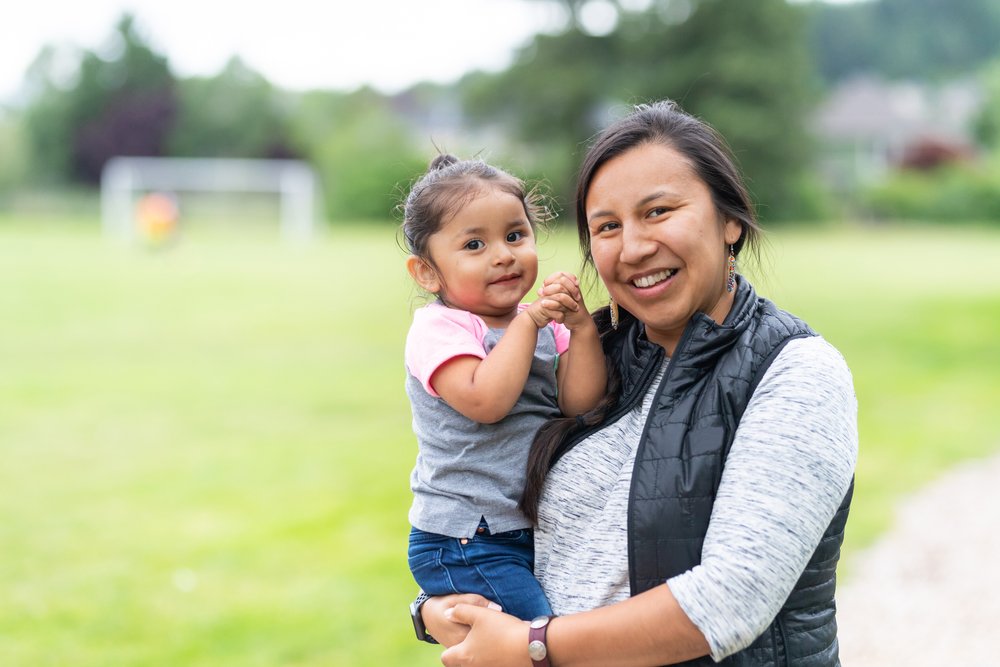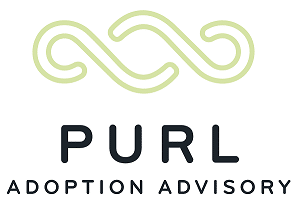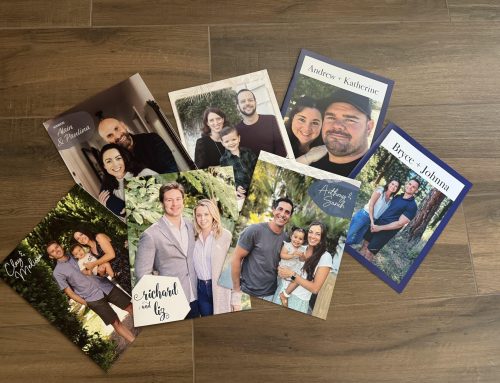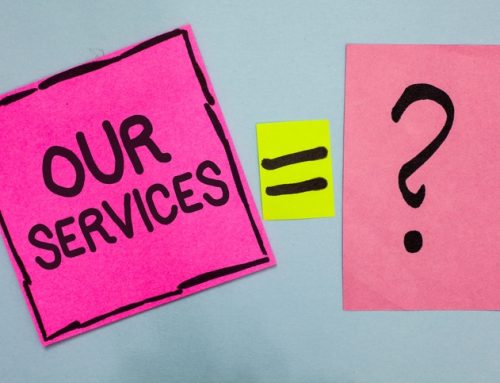
This is NOT legal advice, you should contact an adoption attorney skilled in ICWA cases if you think that it may apply to your adoption.
The Indian Child Welfare Act (“ICWA”, or the “Act”) is a federal law that was enacted in 1978, at a time when a disproportionate number of American Indian and Alaska Native children were being removed from their homes by the state and placed with non-Native adoptive and foster families.
Today, ICWA sets guidelines and requirements for how adoption agencies and the child welfare system serve American Indian and Alaska Native children and their families. The act gives tribes (and Alaska Native villages) legal authority and a voice in some welfare cases, lists criteria for adoptive and foster homes (otherwise known as “placement preferences”), and places a priority on keeping Indian and Alaska Native children with their relatives or other Indian or Alaska Native families. The federal ICWA laws apply differently to involuntary proceedings (e.g., children removed into a state’s foster care system) and voluntary proceedings (e.g., a private adoption). In voluntary proceedings, or private adoption proceedings where the placing parent is voluntarily consenting to the termination of parental rights, the Act is more limited, although the Act does add additional protections to ensure that the consent is actually given voluntarily.
When ICWA May Apply
In order for ICWA to apply, the child involved in the custody proceedings must meet the law’s definition of an “Indian child.” According to the Act, an Indian child is any unmarried minor who is either of the following:
-
a registered member of a federally recognized Indian tribe
-
eligible to be a member of a federally recognized Indian tribe and the biological child of a member of the tribe
This means that even if a child or birth parent identifies as American Indian or Alaska Native, he or she must be eligible for tribal membership in order for ICWA to apply. It is up to each individual tribe to determine eligibility and membership requirements.
In addition to the federal ICWA requirements, some U.S. states have additional statutes protecting children and parents of American Indian or Alaska Native heritage (often referred to as “Mini-ICWA states”). In many of those states, notice is given to the tribe even in a voluntary adoption proceeding where it may not be otherwise required, or there are other added protections making even a voluntary adoption (like what exists in private adoption) much more complicated. The states that have enacted their own state’s laws in addition to the federal ICWA laws are Iowa, Nebraska, Wisconsin, Minnesota, Colorado, California, Oregon, Washington, Oklahoma, Connecticut, Maine, North Dakota, Montana, Wyoming, New Mexico, and Michigan. Note that some states, like Nevada, have ICWA laws that only apply to “involuntary” ICWA cases (typically cases through the foster care system). Most private adoption agencies and attorneys will not present families from a Mini-ICWA state to potential ICWA cases, given the added complexities of complying with both the federal ICWA requirements and the state’s “mini-ICWA” laws.
ICWA and Your Adoption
If you are considering adopting a child of American Indian and Alaska Native heritage, it is important that you get assistance to determine if ICWA applies, and if it does, that you comply with all ICWA requirements and any other state laws governing the adoption of American Indian and Alaska Native children. We recommend that you consult with an experienced adoption attorney (preferably a fellow in the Academy of Adoption Attorneys and Assisted Reproduction Attorneys (“AAAA”)) who has specific expertise in ICWA cases when considering presenting to the parents of a child who may be eligible for membership in an American Indian tribe or Alaska Native village. Two well-known and respected fellows of AAAA who understand ICWA related cases in private adoption well are Jay McCarthy based in Arizona, and Mark Fiddler based in Minnesota.
You should consult with an ICWA attorney and/or a AAAA attorney in your state to determine how it may apply to your adoption if a case arises that may involve ICWA. Please understand that if you are from a Mini-ICWA state, you likely will not be permitted by the respective matching adoption professional to present to an expectant family due to the increased risk involved.
Even if you are not from a Mini-ICWA state, there will be added protections for placing parents in an ICWA case where it is a voluntary placement. If ICWA applies, an attorney will be required for the placing parent (something we believe is best practice anyway), but the consent to the voluntary relinquishment of parental rights must be done in writing and taken before a judge no earlier than 11 days after the birth of the child. The judge must ensure that the terms and conditions of the consent was explained in detail and understood by the placing parent. Moreover, if ICWA applies, the placing parent will have the right to revoke the consent for any reason up until the entry of a final decree of termination or of adoption, which is usually longer in ICWA cases than in non-ICWA adoption cases.
For more information on ICWA, here are some public resources:

This is NOT legal advice, you should contact an adoption attorney skilled in ICWA cases if you think that it may apply to your adoption.
The Indian Child Welfare Act (“ICWA”, or the “Act”) is a federal law that was enacted in 1978, at a time when a disproportionate number of American Indian and Alaska Native children were being removed from their homes by the state and placed with non-Native adoptive and foster families.
Today, ICWA sets guidelines and requirements for how adoption agencies and the child welfare system serve American Indian and Alaska Native children and their families. The act gives tribes (and Alaska Native villages) legal authority and a voice in some welfare cases, lists criteria for adoptive and foster homes (otherwise known as “placement preferences”), and places a priority on keeping Indian and Alaska Native children with their relatives or other Indian or Alaska Native families. The federal ICWA laws apply differently to involuntary proceedings (e.g., children removed into a state’s foster care system) and voluntary proceedings (e.g., a private adoption). In voluntary proceedings, or private adoption proceedings where the placing parent is voluntarily consenting to the termination of parental rights, the Act is more limited, although the Act does add additional protections to ensure that the consent is actually given voluntarily.
When ICWA May Apply
In order for ICWA to apply, the child involved in the custody proceedings must meet the law’s definition of an “Indian child.” According to the Act, an Indian child is any unmarried minor who is either of the following:
-
a registered member of a federally recognized Indian tribe
-
eligible to be a member of a federally recognized Indian tribe and the biological child of a member of the tribe
This means that even if a child or birth parent identifies as American Indian or Alaska Native, he or she must be eligible for tribal membership in order for ICWA to apply. It is up to each individual tribe to determine eligibility and membership requirements.
In addition to the federal ICWA requirements, some U.S. states have additional statutes protecting children and parents of American Indian or Alaska Native heritage (often referred to as “Mini-ICWA states”). In many of those states, notice is given to the tribe even in a voluntary adoption proceeding where it may not be otherwise required, or there are other added protections making even a voluntary adoption (like what exists in private adoption) much more complicated. The states that have enacted their own state’s laws in addition to the federal ICWA laws are Iowa, Nebraska, Wisconsin, Minnesota, Colorado, California, Oregon, Washington, Oklahoma, Connecticut, Maine, North Dakota, Montana, Wyoming, New Mexico, and Michigan. Note that some states, like Nevada, have ICWA laws that only apply to “involuntary” ICWA cases (typically cases through the foster care system). Most private adoption agencies and attorneys will not present families from a Mini-ICWA state to potential ICWA cases, given the added complexities of complying with both the federal ICWA requirements and the state’s “mini-ICWA” laws.
ICWA and Your Adoption
If you are considering adopting a child of American Indian and Alaska Native heritage, it is important that you get assistance to determine if ICWA applies, and if it does, that you comply with all ICWA requirements and any other state laws governing the adoption of American Indian and Alaska Native children. We recommend that you consult with an experienced adoption attorney (preferably a fellow in the Academy of Adoption Attorneys and Assisted Reproduction Attorneys (“AAAA”)) who has specific expertise in ICWA cases when considering presenting to the parents of a child who may be eligible for membership in an American Indian tribe or Alaska Native village. Two well-known and respected fellows of AAAA who understand ICWA related cases in private adoption well are Jay McCarthy based in Arizona, and Mark Fiddler based in Minnesota.
You should consult with an ICWA attorney and/or a AAAA attorney in your state to determine how it may apply to your adoption if a case arises that may involve ICWA. Please understand that if you are from a Mini-ICWA state, you likely will not be permitted by the respective matching adoption professional to present to an expectant family due to the increased risk involved.
Even if you are not from a Mini-ICWA state, there will be added protections for placing parents in an ICWA case where it is a voluntary placement. If ICWA applies, an attorney will be required for the placing parent (something we believe is best practice anyway), but the consent to the voluntary relinquishment of parental rights must be done in writing and taken before a judge no earlier than 11 days after the birth of the child. The judge must ensure that the terms and conditions of the consent was explained in detail and understood by the placing parent. Moreover, if ICWA applies, the placing parent will have the right to revoke the consent for any reason up until the entry of a final decree of termination or of adoption, which is usually longer in ICWA cases than in non-ICWA adoption cases.
For more information on ICWA, here are some public resources:



